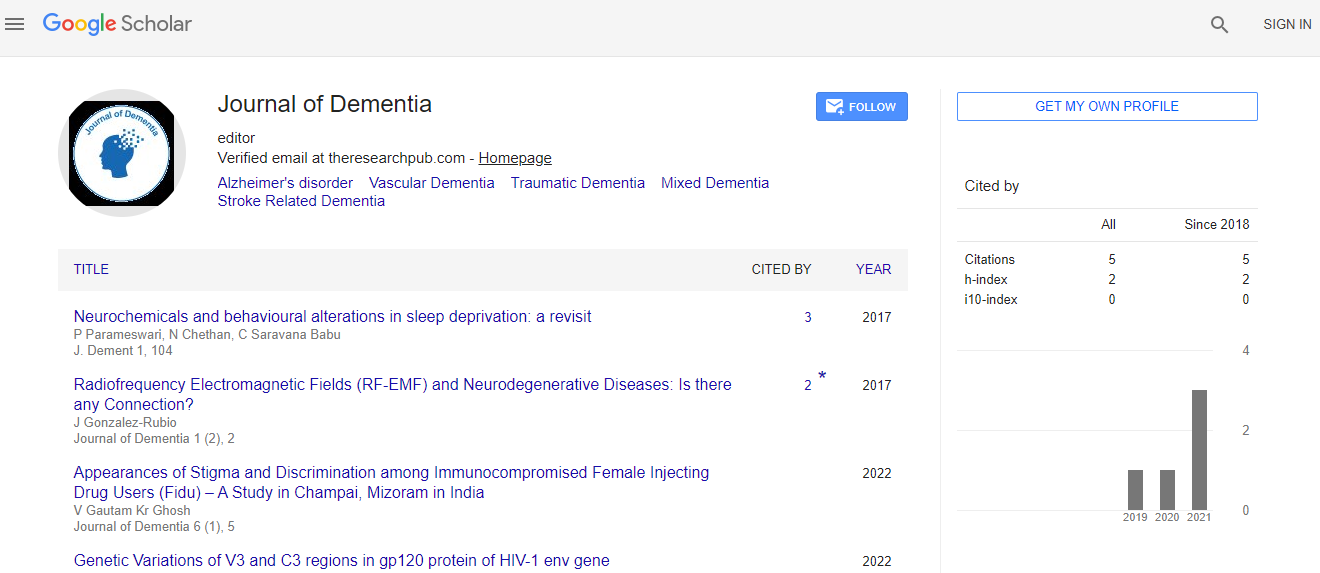Understanding Memory Loss in Alzheimer's Disease: From Molecular Mechanisms to Therapeutic Approaches
*Corresponding Author: Haruka Takahashi, Department of Occupational Therapy, Tehran University of Social Welfare and Rehabilitation Sciences (USWR), Iran, Email: hashiharu004@gmail.comReceived Date: Jan 01, 2025 / Published Date: Jan 30, 2025
Citation: Haruka T (2025) Understanding Memory Loss in Alzheimer’s Disease:From Molecular Mechanisms to Therapeutic Approaches J Dement 9: 262.
Copyright: © 2025 Haruka T. This is an open-access article distributed under theterms of the Creative Commons Attribution License, which permits unrestricteduse, distribution, and reproduction in any medium, provided the original author andsource are credited.
Abstract
Alzheimer’s disease (AD) is a neurodegenerative disorder characterized by progressive cognitive decline and memory loss. The underlying molecular mechanisms contributing to memory impairment in AD remain an area of intense research. This review explores the key factors contributing to memory loss, including amyloid-beta plaques, tau tangles, neuroinflammation, and synaptic dysfunction. We also highlight emerging therapeutic strategies targeting these mechanisms, ranging from amyloid-targeting antibodies to novel approaches that aim to regulate tau pathology and neuroinflammation. Current treatments are limited to symptom management, and there is an urgent need for diseasemodifying therapies. We discuss the promise of potential treatments, including immunotherapies, small molecule inhibitors, and gene therapy, with an emphasis on clinical trial outcomes. This review aims to provide a comprehensive overview of AD-related memory loss, from molecular understanding to therapeutic interventions, offering insights into future directions for research and clinical practice.

